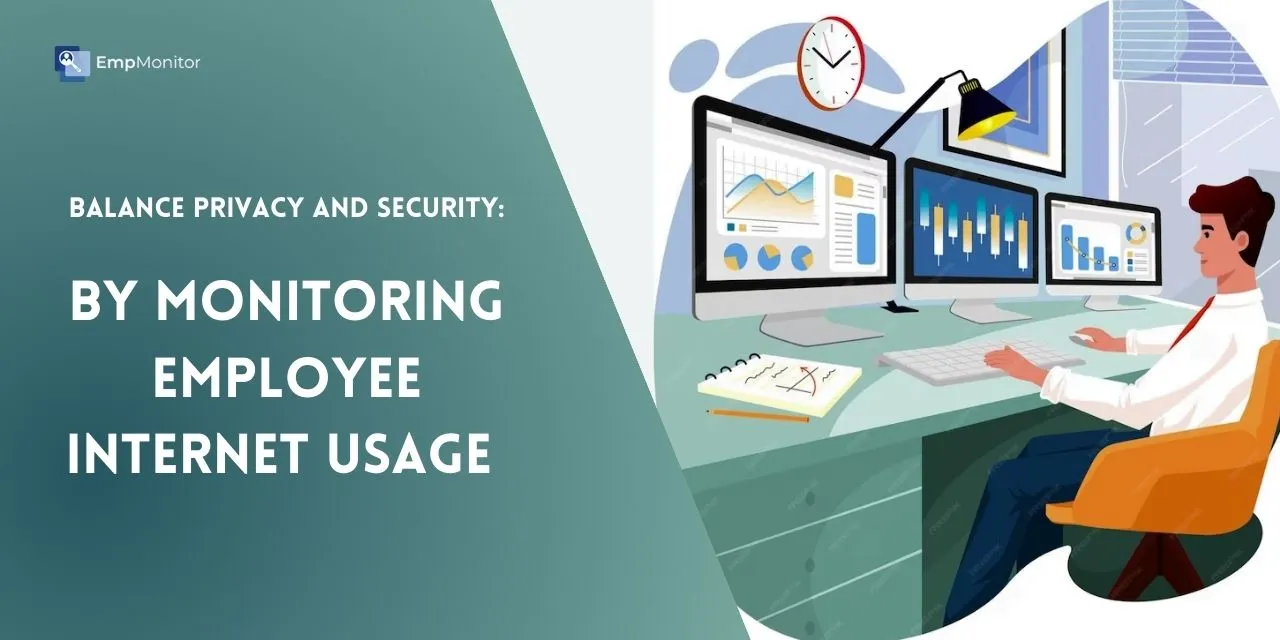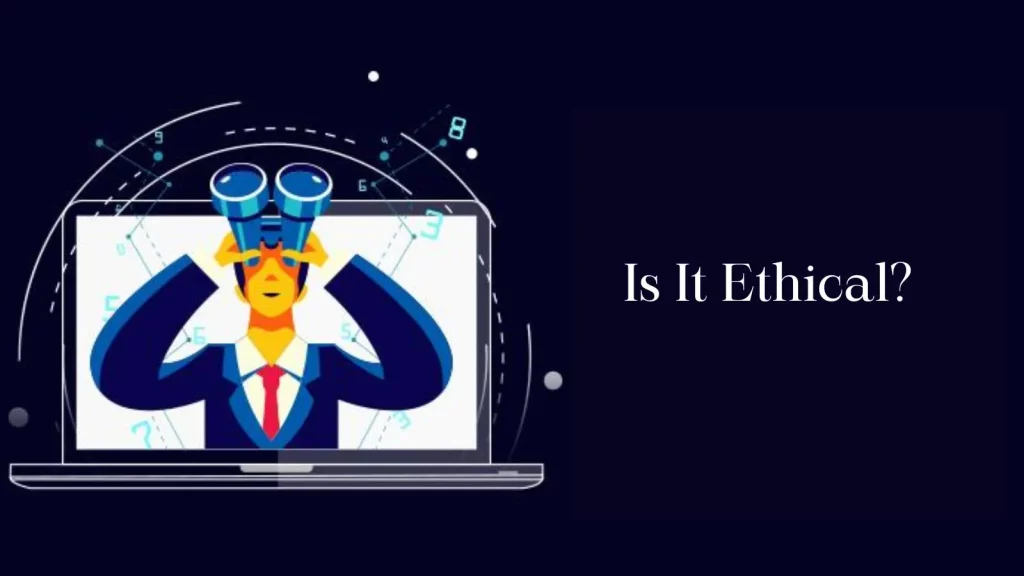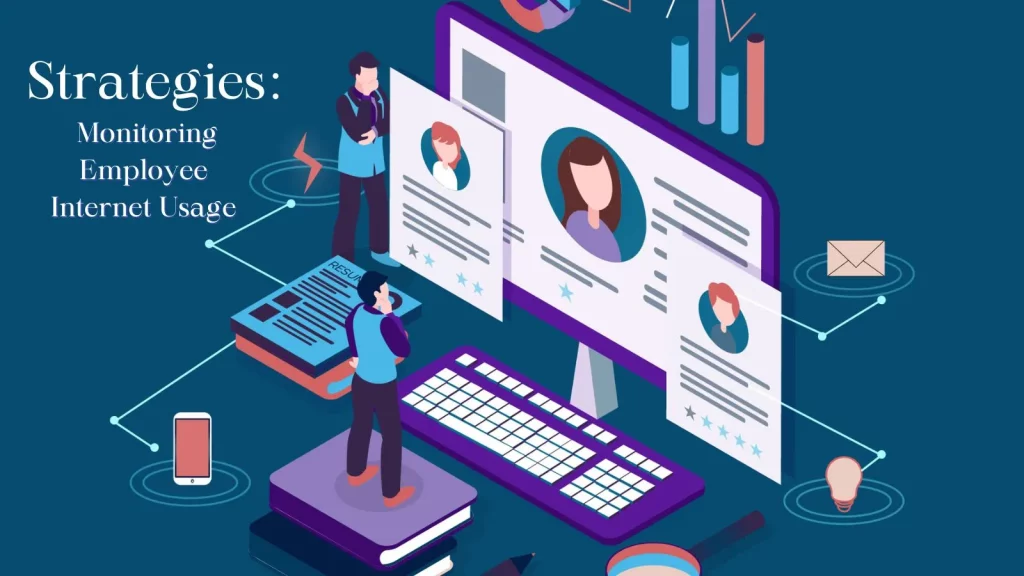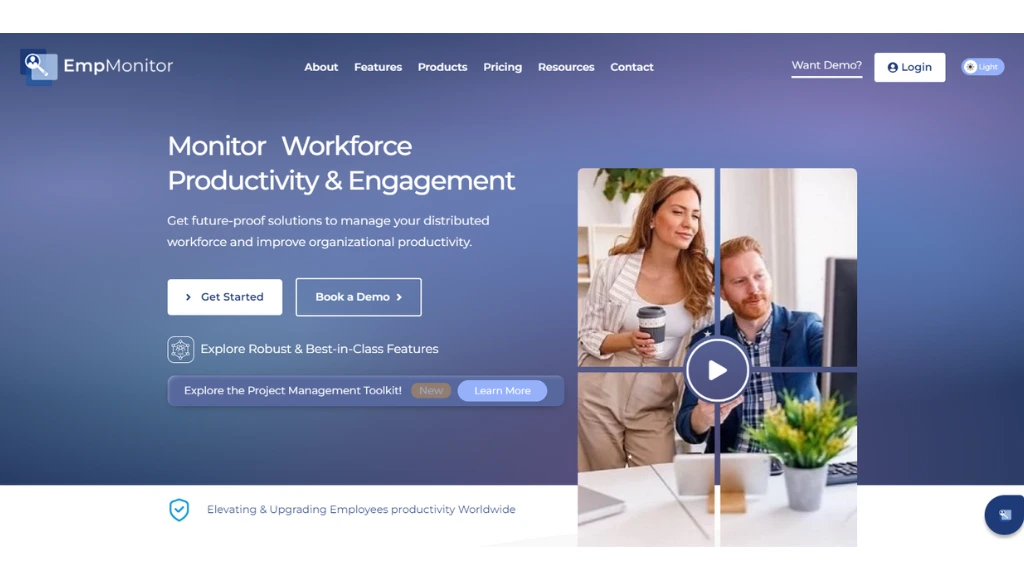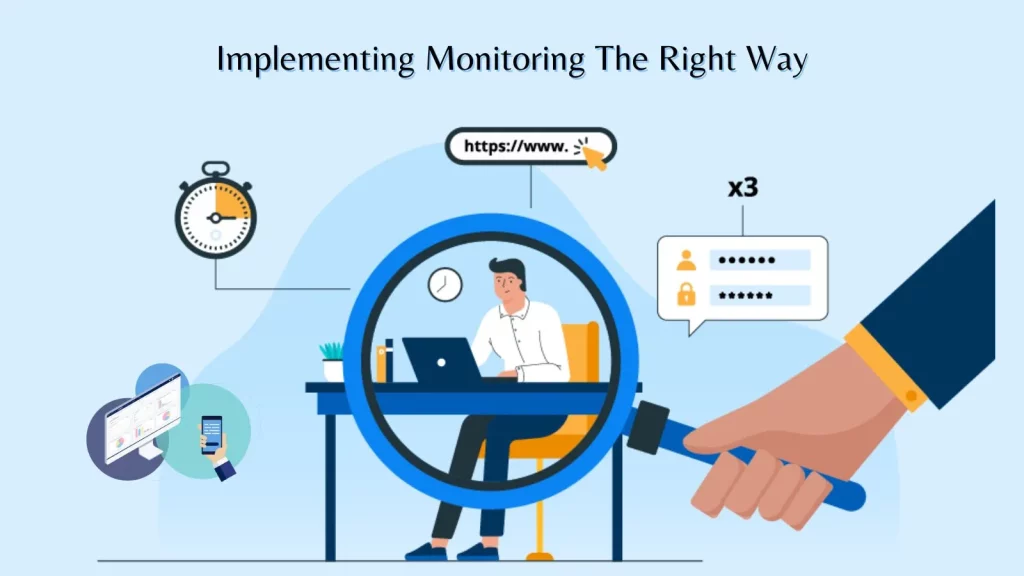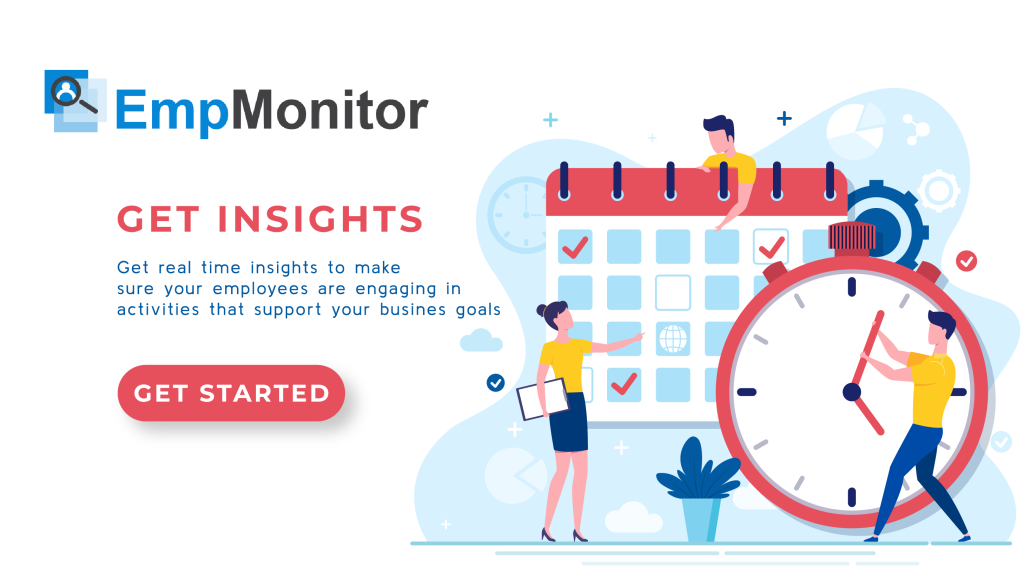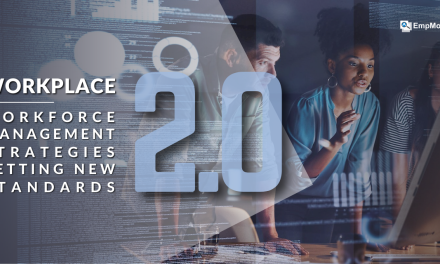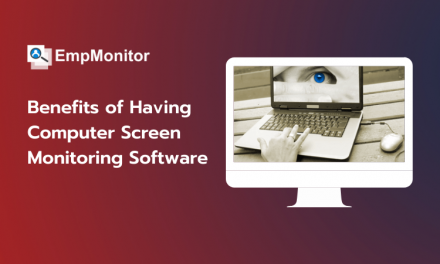In any workplace- where technology connects us all, finding a balance between privacy and security is really important. Imagine a world where we can freely browse the Internet at work, but what if that freedom poses risks? This is where monitoring employee internet usage comes into play.
It’s a way for employers to check what websites employees visit or what they do online while at work. It helps companies to make sure everyone stays safe from things like cyber-attacks, but it’s also vital to do it in a way that respects everyone’s personal space. Balancing these two things—safety and privacy—is really tricky but very important in today’s workplaces.
In this blog, We’ll discuss why keeping an eye on internet use is necessary, but also how we can do it in a way that doesn’t enter anyone’s personal space.
LISTEN TO THE PODCAST NOW!
The Purpose Of Monitoring Employee Internet Usage
Monitoring employee internet usage serves as a shield for your company’s assets and the smooth flow of daily tasks rather than a way to interfere with employee privacy. It provides valuable insights into employee behavior and productivity without making them feel overly observed.
By tracking internet activity, you gain a window into employee productivity patterns, identifying areas that might disturb efficiency, such as excessive time spent on non-work websites or social media during work hours. Armed with this knowledge, targeted training or policies can be introduced to tackle these issues, enhancing overall effectiveness.
Moreover, in industries with strict regulations like finance or healthcare, monitoring ensures compliance with legal requirements. When employees are aware of this monitoring, they tend to stick more closely to company guidelines, reducing the likelihood of unethical conduct. It contributes to nurturing a culture within the organization that values responsibility and honesty.
Is It Ethical To Monitor Employee Internet Activity?
It’s okay to check what employees do online. Employers can look at what employees do on work computers. Since employees are using company resources, they have the right to check whether the resources have been utilized effectively. However, organizations should also inform their employees that their computer activities are getting tracked.
Moreover, employers must be careful with private stuff and follow laws like HIPAA. They have to keep any collected info safe. Some states in the USA, like Connecticut, California, Louisiana, South Carolina, and New York, have extra rules about telling employees they’re being watched or keeping their privacy safe. Before a company starts looking for employees, they should know the laws in their area to avoid any problems.
It’s all about finding a fair balance between keeping work safe and respecting everyone’s privacy.
Challenges Of Monitoring Employee Internet Usage
Monitoring how employees use the Internet at work offers valuable insights, yet it also presents its own set of challenges:
Privacy Concerns: The primary hurdle in monitoring employee internet usage is privacy. It’s essential to establish clear rules and open communication. Employees must understand that monitor employee internet usage isn’t about invading their privacy but maintaining a well-functioning workplace.
Potential Misuse: While monitoring helps, there’s a risk of misuse. Employers need strict policies to prevent any wrongful use of the collected data. Ensure that information is used only to boost productivity and protect the company.
Technical and Financial Hurdles: Setting up monitoring systems can be technically complex and costly. While there are multiple monitoring solutions, employers should invest in a tool that fulfils there requirement without exceeding budget.
In such a case, they can opt for reliable tools like EmpMonitor to analyze and monitoring employees work data. Though its easy to implement, EmpMonitor provides all the essential employee monitoring features that you may need for your business.
Overcoming these challenges involves fostering transparency, adhering to strict policies, and investing in suitable monitoring tools while prioritizing both productivity and employee privacy.
Strategies For Monitoring Employee Internet Usage
Balancing privacy and security while monitoring employee internet usage is crucial for a healthy workplace. Here are some strategies that help strike this balance:
Clear Policies and Communication: Establishing transparent guidelines is key. Companies should communicate what is being monitored and why. Employees must understand the reasons behind monitoring and how it contributes to overall security without focusing excessively on their privacy.
Limited Monitoring Scope: Focus on monitor employee internet usage efforts only on work-related activities can preserve privacy. Avoiding personal emails or websites helps in the balance between keeping work secure and respecting personal space.
Employee Consent and Involvement: Involving employees in the process can help. Look for their input when creating monitoring policies. This involvement fosters trust and helps employees understand the importance of maintaining a secure work environment.
Anonymized Data Collection: Collecting data without confining it directly to individuals helps protect privacy. Analyzing trends without pinpointing specific employees respects their privacy while identifying broader security issues.
Use Third-Party Software: Employ robust monitoring tools like EmpMonitor for employee internet usage monitoring. This employee internet monitoring software track employee internet usage activities, detects risky behavior, and generates reports without interfering with personal privacy. It focuses on safeguarding the company without unnecessary intrusion.
How Employee Monitoring Software Helps In Monitoring Employee Internet Usage
Employee monitoring software, like EmpMonitor, plays a crucial role in keeping an eye on how employees use the internet at work. Here’s how it helps:
Tracking Internet Activity: EmpMoniter keeps a record of the websites employees visit, the apps they use, and the time spent on different online activities. It helps employers understand where their team spends time online during work hours.
Identifying Productivity Patterns: Monitoring internet usage- the software helps employers spot patterns. It shows which websites or tasks might be distracting or taking up too much time, allowing for better management of productivity.
Ensuring Compliance and Security: Monitoring software ensures that employees follow company policies regarding internet usage. It also helps in finding any risky behavior or potential security threats, safeguarding sensitive company data.
Generating Reports: These tools create reports summarizing employees’ internet activities. Employers can use these reports to understand work patterns, allocate resources effectively, and identify areas where additional training or support might be needed.
Encouraging Responsible Usage: When employees know their internet activity is monitored, they are more likely to use the internet responsibly. It can lead to a more focused work environment and reduce non-work-related internet browsing.
Improving Communication: Monitoring employee activities can also help you in improving communication and collaboration between team members. It can help the employers to find the communication gap between the team members that they can improve by taking some corrective measures. Employers can also discuss with employees how internet usage affects work and find ways to make it more productive for everyone.
With Employee monitoring software, like EmpMonitor, isn’t just about spying on individuals. It’s a tool to help businesses understand how well their team is using internet to collaborate with each other. Or is there any breakdown that can be causing lag in their work productivity. Using this data responsibly, employers can create a balanced and productive work environment that respects privacy and security concerns.
Education and Training: Educating employees about the reasons behind monitoring and how it’s done ethically can ease concerns. Training sessions can highlight the importance of cybersecurity and how monitoring contributes to a safer work environment.
Legal Compliance: Adhering to local laws and regulations is crucial. Some regions have specific rules about employee monitoring. Understanding and following these laws helps maintain a legally compliant and ethical monitoring system.
Balancing privacy and security in monitoring employee internet usage involves respecting the need for a safe work environment and the individual’s right to privacy. Employing these strategies and incorporating EmpMonitor software creates a harmonious balance, ensuring workplace security without compromising employee privacy.
ALSO READ
The Ultimate Bucket-List To Successfully Track Employee Internet Usage
Poor Employee Engagement? An Employee Monitor Software Can Do Wonders!
Efficient Internet Usage Policy To Set Employees Up For Success
Implementing Monitoring The Right Way
Using monitoring systems at work needs to be fair and respectful. Here’s how:
Getting Everyone on Board: Before using any monitoring tools, tell everyone. It’s about being fair. Employees should know they’re being monitored and why. That’s called informed consent. If they understand, they’re more likely to agree.
Being Open and Honest: Transparency is key. Make sure everyone knows how the monitoring works. Explain what’s being tracked and why it’s important for work. When everyone knows the rules, it’s fair for everyone.
Using Data Carefully: When you collect data from monitoring, use it properly. Don’t use it to judge someone unfairly. Utilize it to improve things, like making work better or providing extra help where it’s needed.
Protecting Privacy: Be careful with personal information. Keep it safe. Don’t let anyone see things they shouldn’t. Focus on the work-related stuff and keep personal things private.
Ethical monitoring is all about respect and fairness. When everyone knows what’s happening and the information is used fairly and responsibly, it can help create a better and safer work environment for everyone.
Conclusion
It’s crucial to find a balance between keeping things safe and respecting everyone’s privacy at work. By using tools like EmpMonitor, businesses can keep an eye on internet use while being fair to everyone. It’s like finding the right mix between keeping information safe and letting everyone work comfortably.
Keeping efficient employee internet usage policy at work is a way to make sure everyone stays safe and works well. But it’s also important to respect everyone’s privacy.
When we use monitoring tools fairly and honestly, everyone feels better. Employees know what’s happening, and bosses can keep things secure without attacking personal stuff. It’s a balance between being safe and being respectful.
By being open, fair, and using data wisely, workplaces become better for everyone. It’s about creating an environment where everyone feels valued and safe. When we do things the right way, it helps build trust and makes work a nicer place for all.

